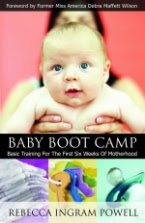My mother found a very young teacher, fresh out of college and newly married. Studying for her master’s, this gal was what I can best describe as a music nerd. (Not that there's anything wrong with that, LOL) She was definitely passionate about all things piano, but she was just a little too “out there” to connect with a peer-oriented, cool-conscious teen. I decided I was "done" with piano. My mom wasn't quite "done" with my taking piano lessons, however! But after trying two more teachers over the next few years--neither of whom could really measure up to my wonderful Mrs. Mosely, my mom finally relented and let me drop out of music.
Similarly, my daughter began taking piano at the age of six. By the time she was ten, she was already writing songs and composing wonderfully complex piano pieces. Along came sixth grade, and she became part of the youth worship band at church. She was also playing basketball. When her schedule got crowded, she came to me, begging to take some time off from piano. I couldn’t do it. I was literally scared to death that she would abandon her music study, and I knew that she was born to worship God through song. I went straight to her teacher, who agreed to work with Danya more on her original compositions, even allowing her to perform these pieces in recitals rather than the traditional Bach and Beethoven.
Clearly, middle school is a time when a child’s values and identity are questioned. They begin to shrug off what they once held dear in an effort to conform to peer expectations. This often surfaces as a sudden disinterest in a sport or musical instrument they have studied throughout childhood. How do you know when to encourage a child through his disinterest or boredom--and when to call it done? Tomorrow, we'll talk about what it means to refocus our kids. I hope you'll join me!

Don't miss any great parenting info: Subscribe to my daily email newsletter! Click HERE.






















No comments:
Post a Comment